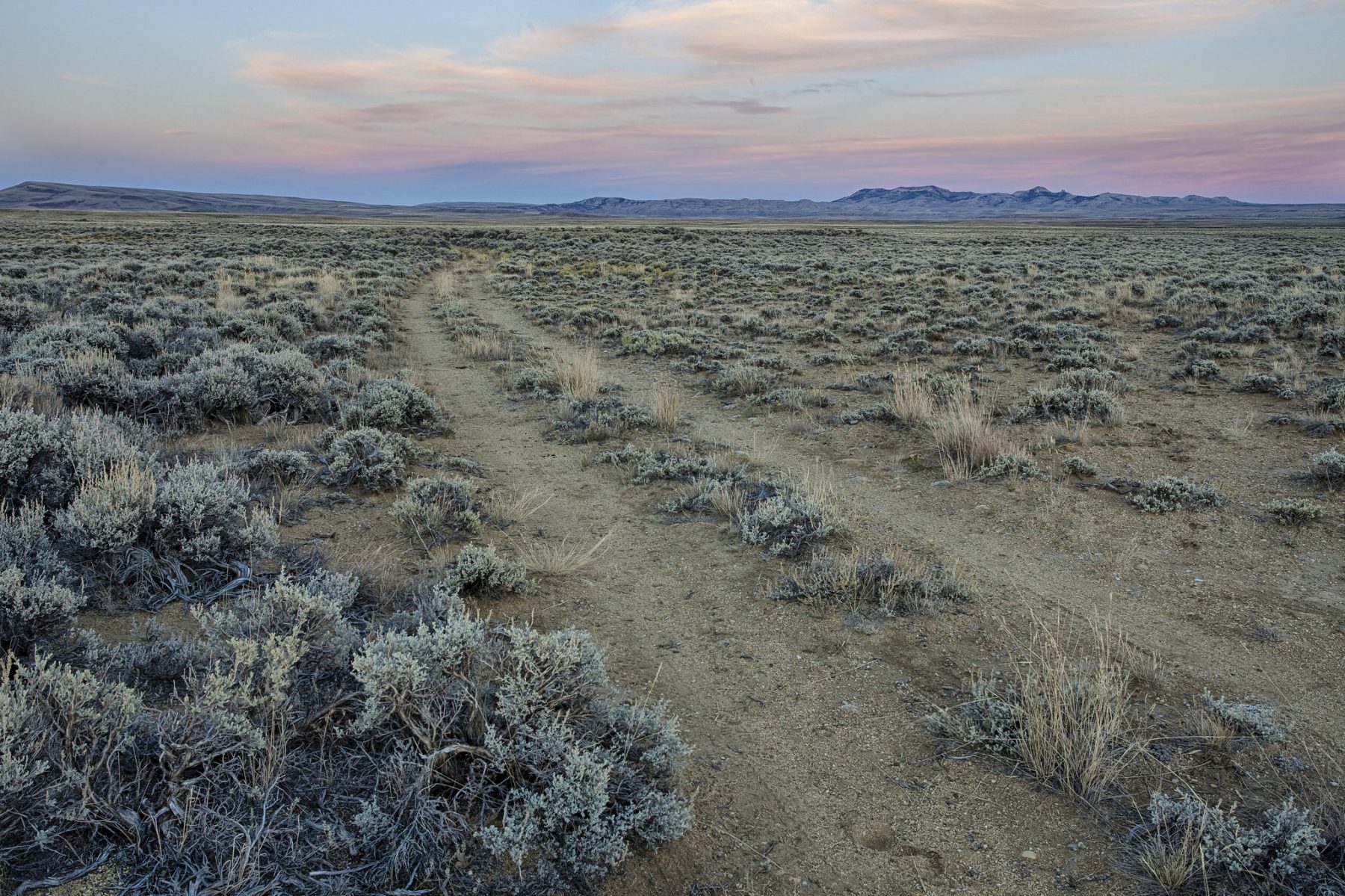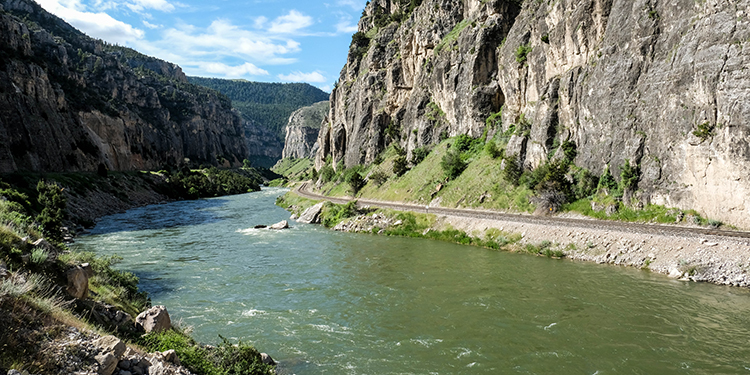BENEATH THE SURFACE
The quiet work of watchdogging Wyoming’s water
Like the rest of the landscape, water in Wyoming is dramatic. Rivers carve through canyons, geysers erupt from below ground, reservoirs emerge from arid shrublands, and idyllic trout streams meander down from the mountains. And with water for agriculture and industry in limited supply, any conversation about water management is likely to turn heated.
Clean water is vital to our health, economy, and quality of life in Wyoming — and to the fish, wildlife, and plant life that surrounds us. Protecting clean water is a core part of the Wyoming Outdoor Council’s mission. But with a few notable exceptions, it’s a quiet undertaking: Much of this work happens behind a desk or on the phone, pouring over technical documents to identify threats to water from industrial development or shifting regulations.
The nitty gritty work of an advocacy group like the Outdoor Council is watchdogging government actions at the state level. This can involve reviewing proposed rule changes within the Department of Environmental Quality or actions by the legislature. Or we may focus on more discrete topics, like permits to allow companies to inject polluted water underground or to dispose of pollutants into bodies of water on the surface. Oftentimes, opportunities to review and comment on proposed actions escape the attention of citizens and other advocacy groups who can’t dedicate a full-time staff member to water quality. Fortunately, the Outdoor Council can serve this role. And we often work with partner groups around the state to divide and conquer, ensuring these issues have the attention they deserve.
Reading public notices for draft wastewater discharge permits, proposed state agency rule changes, or legislative bill drafts is not what most folks consider exciting. Still, it’s essential: Sifting through these dense and technical documents is the front line of protection for clean water. Eventually we may show up at public meetings to ask tough questions. But if and when we decide to provide comments to regulators and decision makers on an issue and encourage citizens to do the same, we’ve done the legwork to identify and understand the problem and any possible solutions.
The ability to engage with agency staff and lawmakers, and to access the draft permits and regulations as well as the underlying data, is critical. Transparency keeps government accountable to the public and gives everyday citizens the ability to take action.
The Outdoor Council is working on some important water issues right now — like oilfield wastewater that’s flowing to Boysen Reservoir and could potentially be injected into the Madison Aquifer, and septic system rules and water quality planning in Teton County — but they weren’t dropped in our lap. We have to dig deep to uncover problems, bring them to the public’s attention, get agencies or decision makers to take a harder look or change their approach. It’s this work that often — but not always — yields positive outcomes.
We’re a small staff with a broad mission, and we can’t read every permit — much less conduct an in-depth review. But we’ve found success in focusing on geographic areas that are particularly sensitive or vulnerable to pollution, and on specific issues we’ve worked with communities on in the past. The quiet work of watchdogging water helps Wyoming citizens make their voices heard, loud and clear.
Continue reading Beneath the Surface



